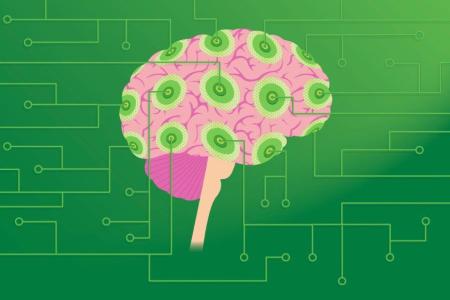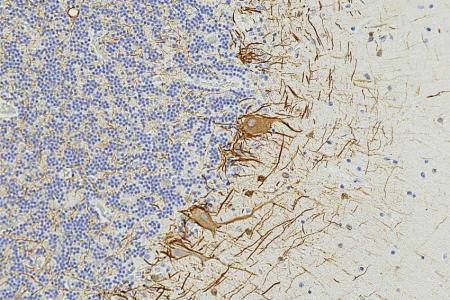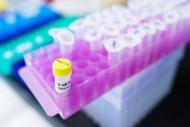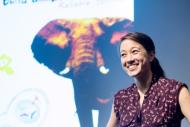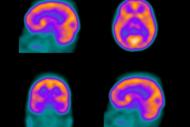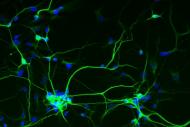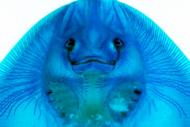Researchers made a significant advance, identifying the first “high-confidence” risk gene for Tourette disorder as well as three other probable risk genes.
Three UCSF faculty have been elected to the National Academy of Sciences, one of the highest honors accorded to American scientists.
A new trial may hold new hope for military personnel with PTSD and alcohol abuse through treatment with oxytocin, sometimes referred to as the “love hormone.”
A newly approved drug that is the first to reflect the current scientific understanding of multiple sclerosis is holding new hope for the hundreds of thousands Americans living with the disease. It also highlights the importance of clinician scientists like UCSF’s Stephen Hauser who are working to transform research into cures for patients.
Christina Hueschen took home the top prize at this year’s UCSF Grad Slam competition for her talk titled “How to Build an Elephant.”
Neuroimaging is helping to distinguish between depression and dementia – two diseases with overlapping symptoms that can be difficult to diagnose properly.
Studying brain disorders is complicated for many reasons, not the least being the ethics of obtaining living neurons. To overcome that obstacle, UCSF postdoc Aditi Deshpande is starting with skin cells.
Sharks, rays and skates can hunt for prey hidden in the sandy sea floor by “listening” for faint traces of bioelectricity – they can literally sense their prey’s heart beating.
In an unprecedented leap from lab to patients, a potential treatment for childhood epilepsy identified in experiments with zebrafish.
New research is paving the way to a precision medicine approach to the diagnosis and treatment of patients with traumatic brain injury.


